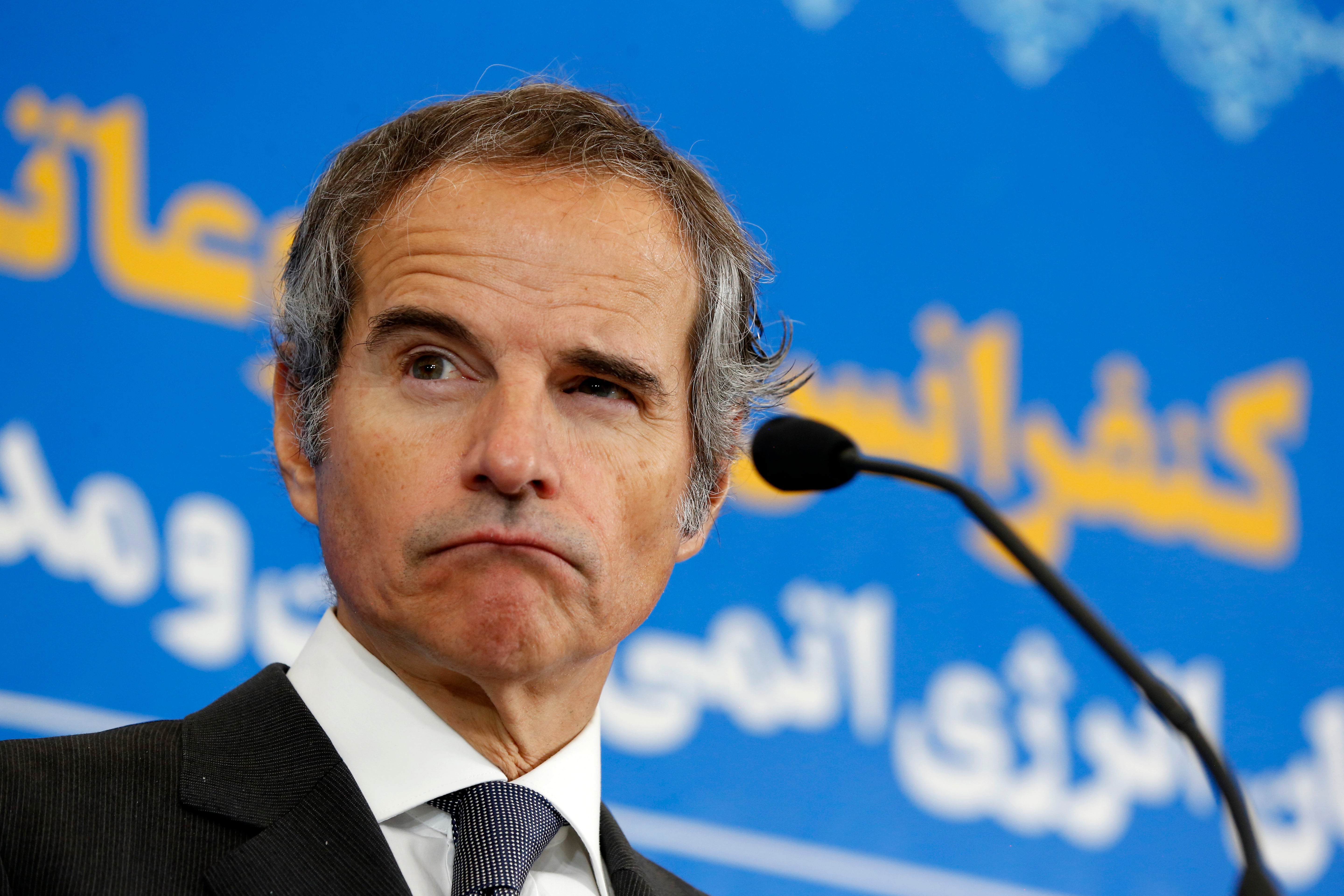UN nuclear chief, facing Israeli criticism on Iran, says his agency 'very fair but firm'
The head of the International Atomic Agency says that the U.N. nuclear watchdog will “never politicize” its work in Iran

The International Atomic Energy Agency will “never politicize” its work in Iran, the head of the U.N. nuclear watchdog said Monday, insisting after Israel’s prime minister accused it of capitulating to Iranian pressure that his agency has been “very fair but firm."
Israeli Prime Minister Benjamin Netanyahu's comments came after a confidential report from the IAEA last week said that its investigators had closed off their investigation of traces of man-made uranium found at Marivan, near the city of Abadeh, about 525 kilometers (325 miles) southeast of Tehran.
Analysts had repeatedly linked Marivan to a possible secret Iranian military nuclear program and accused Iran of conducting high-explosives tests there in the early 2000s.
“Iran is continuing to lie to the International Atomic Energy Agency. The agency’s capitulation to Iranian pressure is a black stain on its record,” Netanyahu told his Cabinet in televised remarks on Sunday.
“If the IAEA becomes a political organization, then its oversight activity in Iran is without significance, as will be its reports on Iran’s nuclear activity," Netanyahu said.
Asked on Monday about that criticism, IAEA Director-General Rafael Mariano Grossi said that his agency’s work is “neutral, it is impartial, it is technical.”
“We will always say things as they are,” Grossi told reporters on the first day of a regular meeting in Vienna of the IAEA board of governors.
Grossi added that he would “never enter into a polemic” with the head of government of a member of the IAEA. “We never politicize. We have our standards and apply them always,” he said.
“The politicization is in the eye of the beholder,” Grossi added.
Israel considers Iran to be its greatest enemy, and Netanyahu has repeatedly said that he wouldn't allow Iran to develop a nuclear weapon. He has said international diplomacy should be accompanied by a serious military option, and hinted that Israel would be prepared to strike Iran on its own if necessary.
Before Netanyahu's comments, Israeli Foreign Ministry spokesperson Lior Haiat said in a statement on Friday that the explanations provided by Iran for the presence of nuclear material at the Marivan site are “not reliable or technically possible.”
But Grossi insisted that the IAEA will “never, ever” water down its safeguards standards.
“We have been strict, technically impartial and, as I like to say, very fair but firm,” he said.
Analysts had repeatedly linked Marivan to a possible clandestine Iranian military nuclear program that the IAEA, the West and other countries say was abandoned in 2003. They had accused Iran of conducting high-explosives tests there in the early 2000s.
Last week's IAEA report said that “another member state” operated a mine at the area in the 1960s and 1970s under the rule of then Shah Mohammad Reza Pahlavi, without elaborating.
Iran had argued the uranium traces could have come from “laboratory instruments and equipment” used by miners at the site. The IAEA called the answer “a possible explanation.”
The IAEA is still seeking explanations on the origin and current location of the man-made uranium particles found at two other sites in Iran, Varamin and Turquzabad.
Tehran has long denied ever seeking nuclear weapons and continues to insist that its nuclear program is entirely for peaceful purposes.
Bookmark popover
Removed from bookmarks